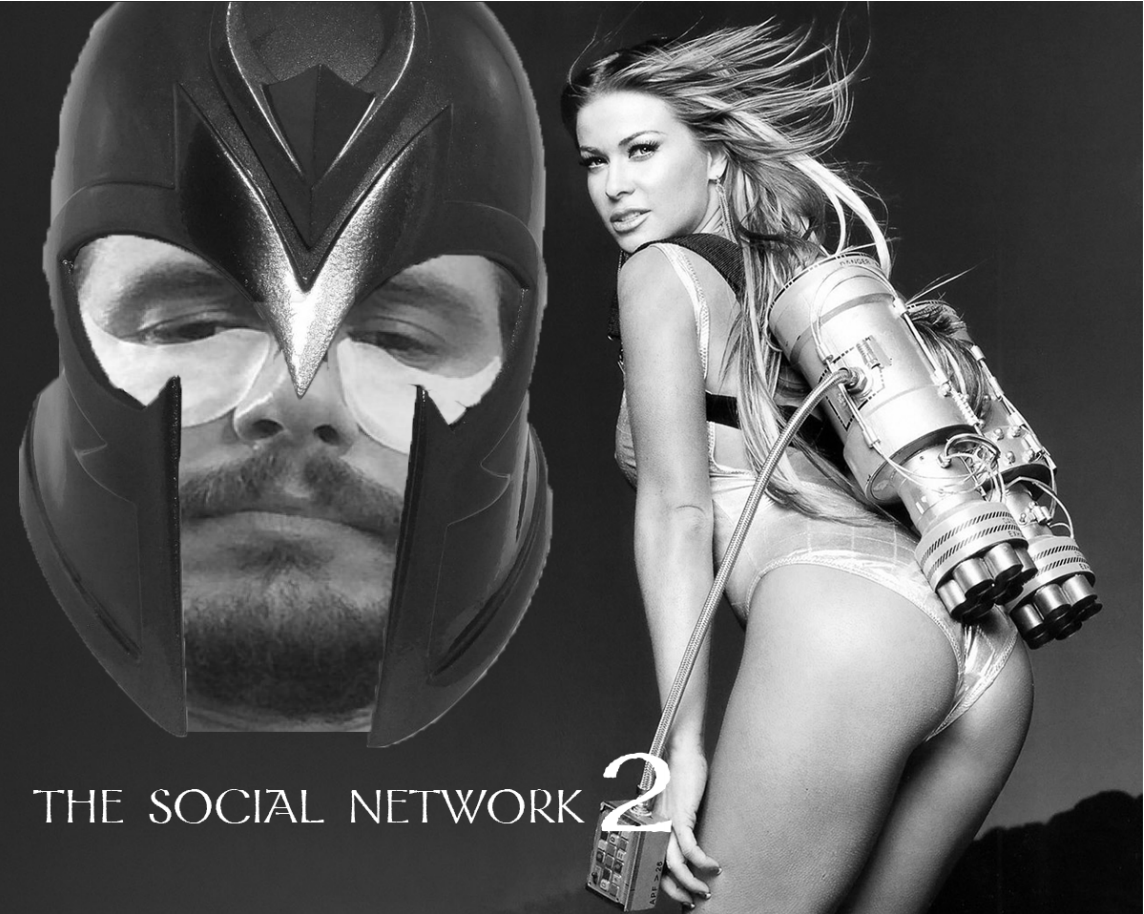The Social Network 2 Movie Review
Sometimes we want to be other people, and sometimes, the people we want to be want to control us as if we were puppet versions of their own personas. This is the idea behind the new film The Social Network 2, the sequel to the acclaimed film from 2010. In the original movie, emotionally warped pervert Mark Zuckerberg decides to give the age-old panty raid an electronic twist. He devises a website that allows Harvard undergrads to make lists of the hottest chicks on campus, and to post the best pictures of their favorite whale-tails, cameltoes, and tramp-stamps. Soon, the evil Winklevoss twins steal the website from Zuckerberg, and turn it into a “social medium”, a place to live a new, ideal virtual life.
The sequel, which hit theaters on Thursday, is influenced by Avatar and Gamer and takes us four hundred years into the future: the Middle East and Africa are a desolate wasteland, the world’s nations have been consolidated (or conquered) into five, robots perform all menial, white-collar and working professional level work, excepting certain jobs like accounting and data entry, which have been preserved for leisure, and the wealthy spend their time on “The Facebook”, a virtual world in which users pay a fee to take control of someone’s body for entertainment. The story follows a group of aristocratic, degenerate youths who use their virtual lives to blow off steam, experience vicarious sexual gratification, or engage in grotesque and prolonged escapades of violence and cruelty. The hero, Tommyss Chalmez-Atherton (James Franco), suffers a moral crisis partway through, and turns against his friends using his mind-controlled Facebook profile, Dean Koontz (no relation to author), who resides in a colorful trash-village in what was once South Africa. Along the way, he falls in love with the Facebook profile Aemylia Lightsphere, a beautiful diplomat and pornographic actress controlled offscreen by a mysterious young girl living in New Europe, whose “memes”–a type of virtual book or artwork capable of altering the virtual universe–are the key to unlocking the full power of The Facebook, which Tommyss must try to keep out of the wrong hands. In many ways, the film is successful. The scenes of the characters smashing their keyboards, spitting and wailing, and covering everything with lotion, while virtually engrossed in the impressively athletic sexual exploits of their oiled avatars, remind us that often, we too cannot distinguish reality from fiction. In one memorable extended scene, a food fight between avatars becomes a rich, brightly-colored orgy, as various foods–Chantilly cream, rasberry syrup, corned beef–become both representations of, and instruments for heightening, mystical human sexual energies. Towards the end, the film loses steam, and the final fight between Tommyss and his former companions, in which clever editing shows the main characters masturbating gravely in their biospheres as their Facebook profiles engage in grotesque sexual encounters of all orientations and methods, seems like a disappointment after such an exciting first half. Strong performances by the leads are hampered by the ensemble cast, except for a notable performance by Daniel Craig, Tommyss’s father, whose Facebook profile, a small and seemingly mute Chinese stallman who stonefacedly watches Tommyss and his friends pushing each other to the extremes of erotic excitement and humiliation, helps lend a rich and nuanced Oedipal drama to the film. In theaters until August.
